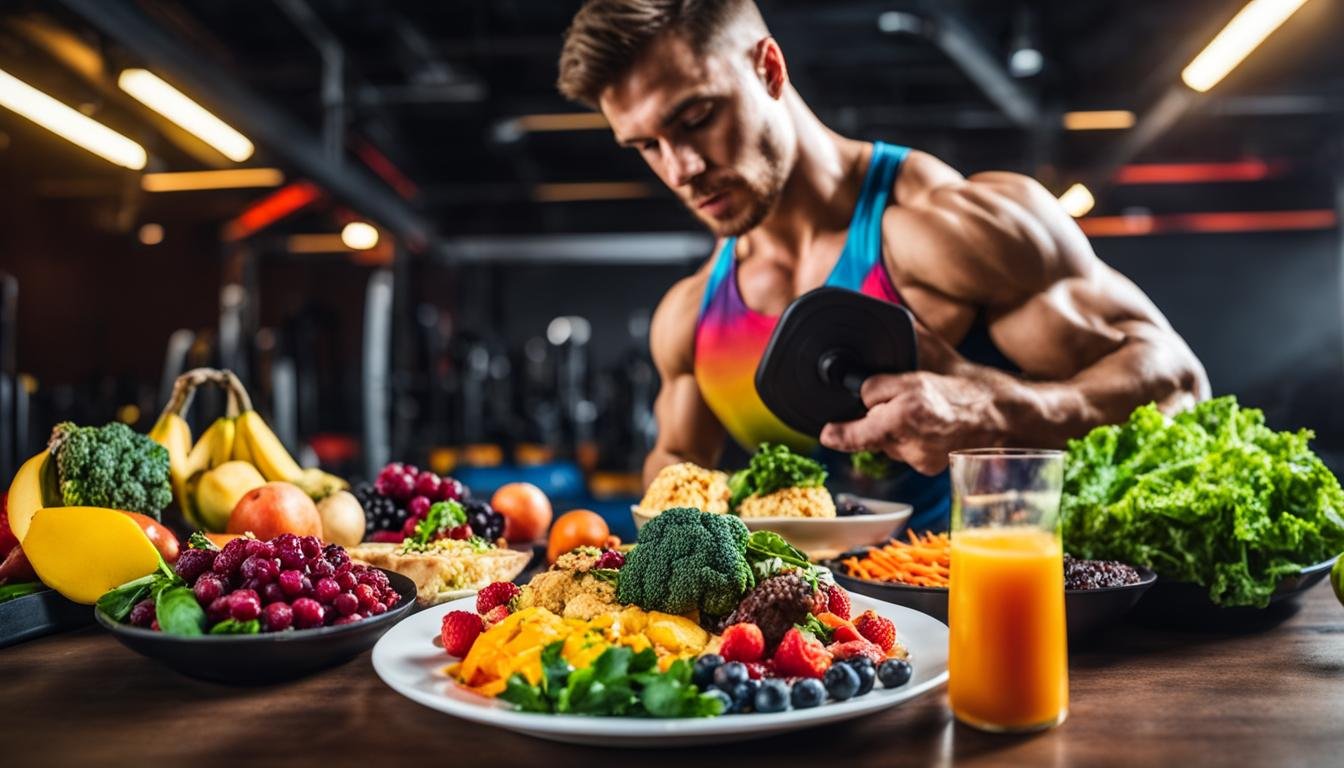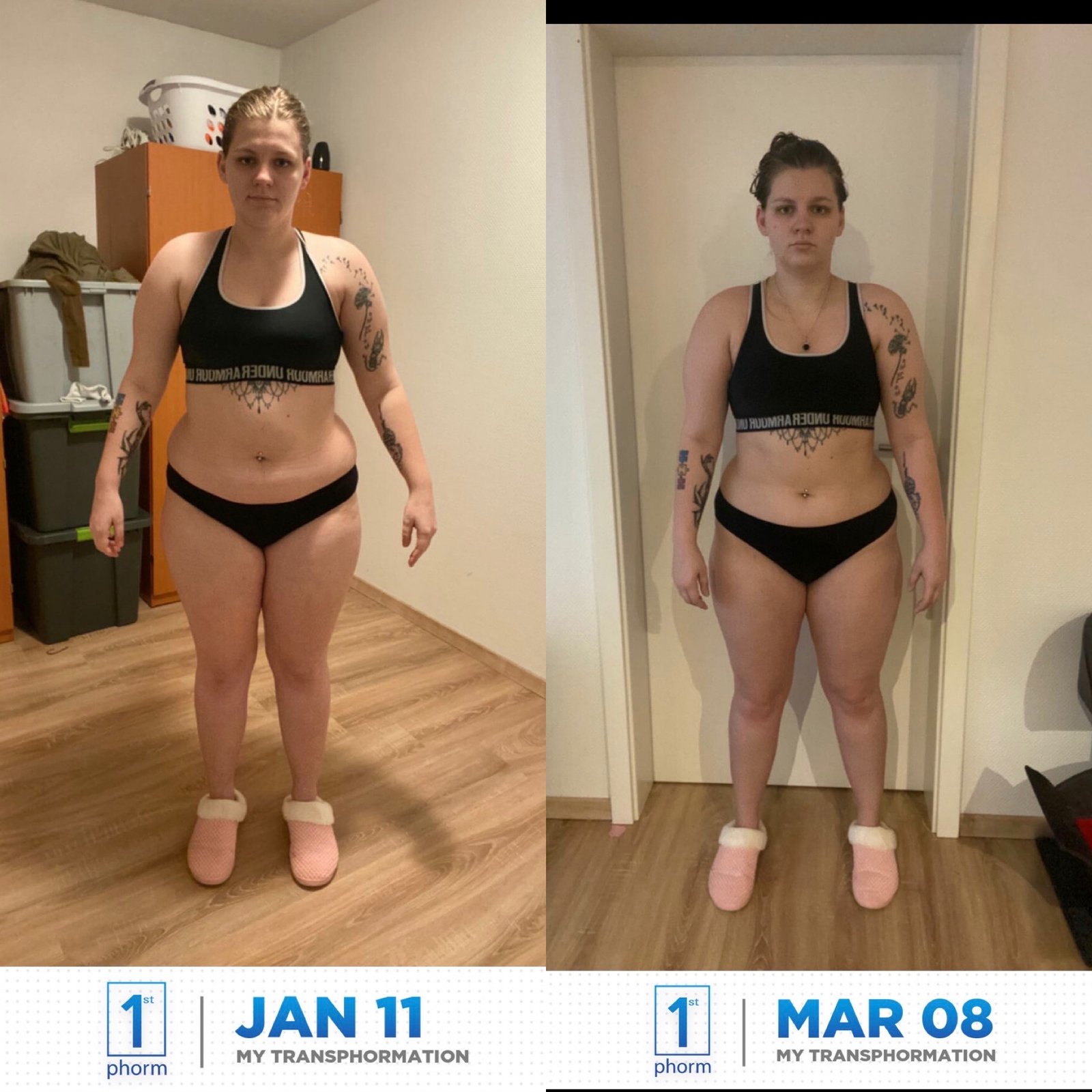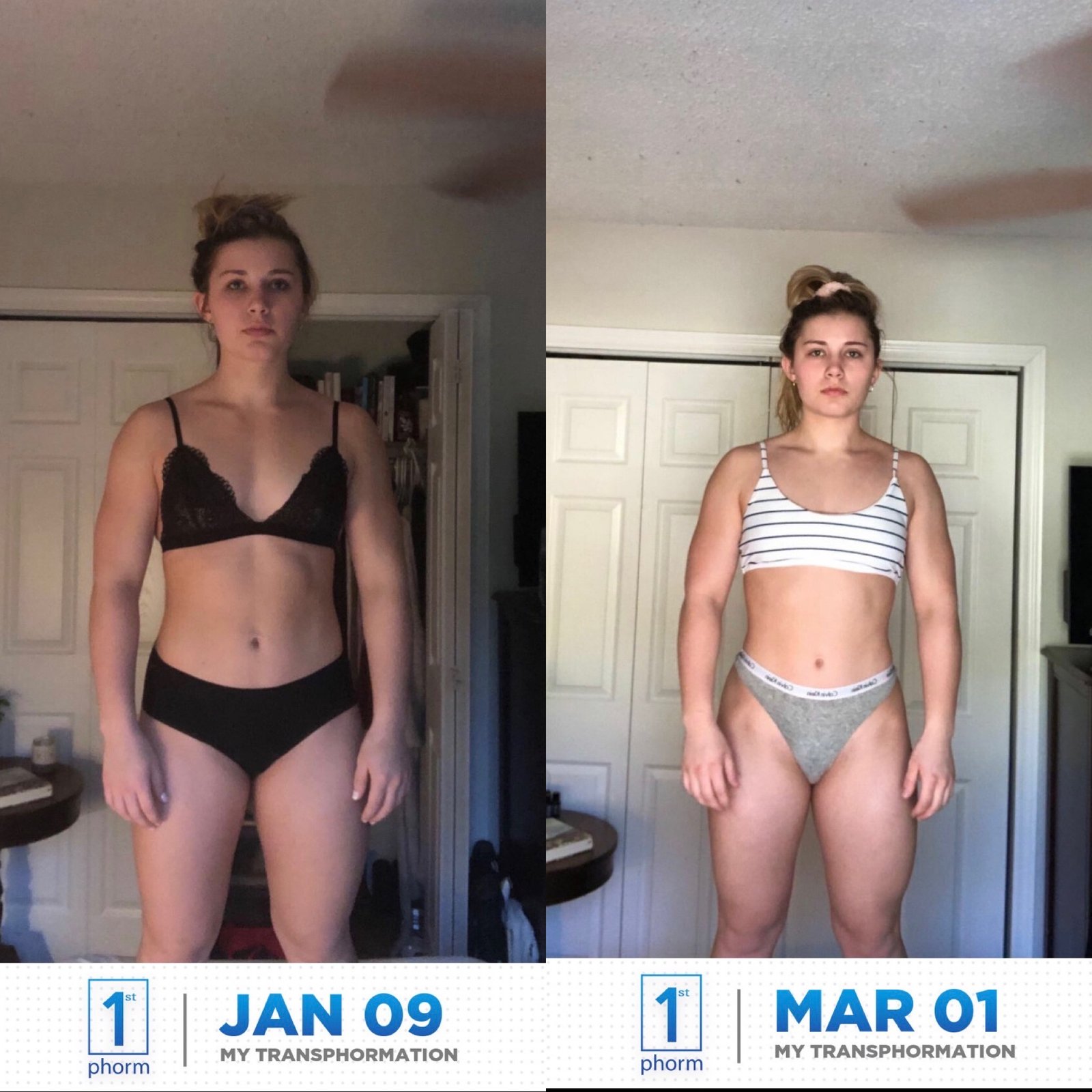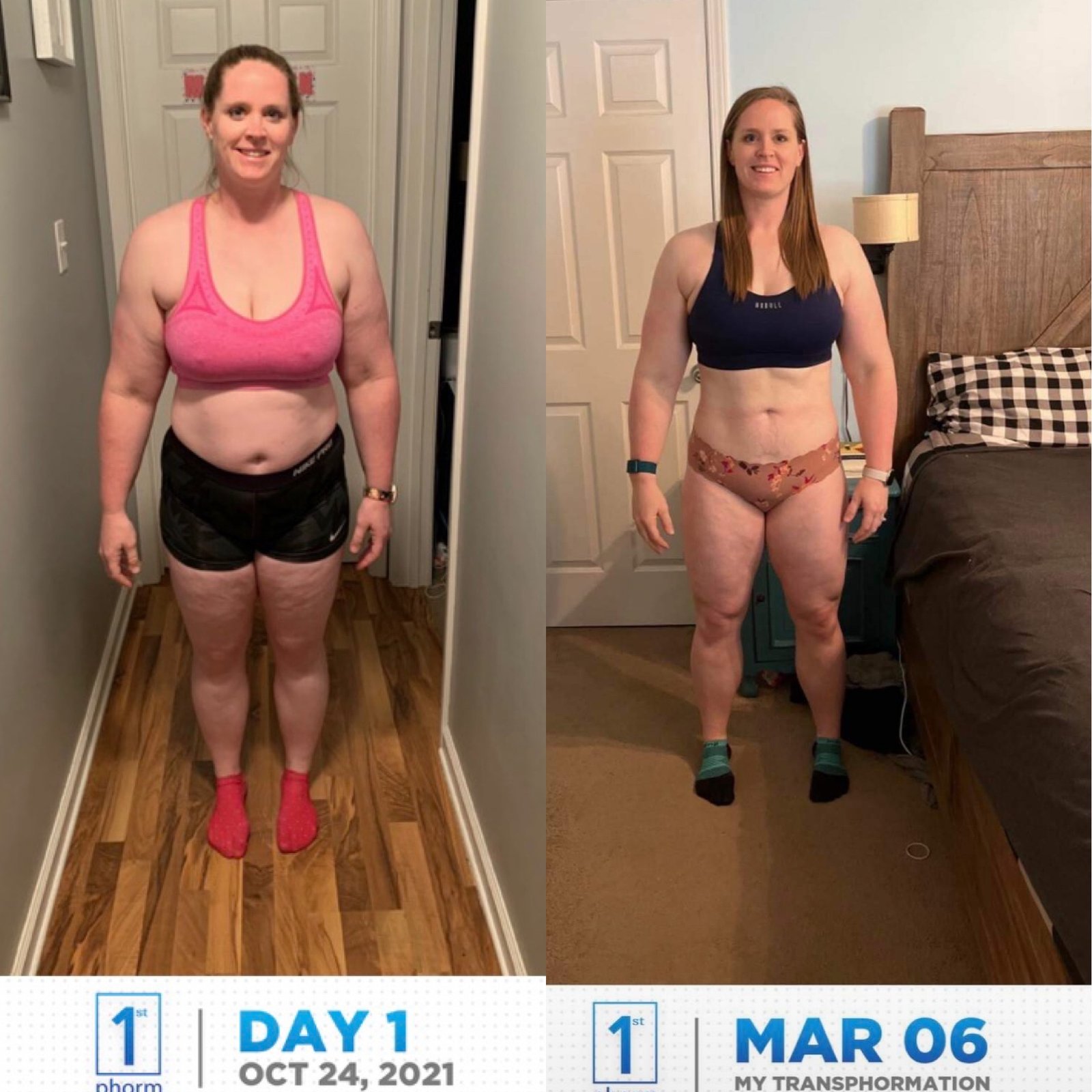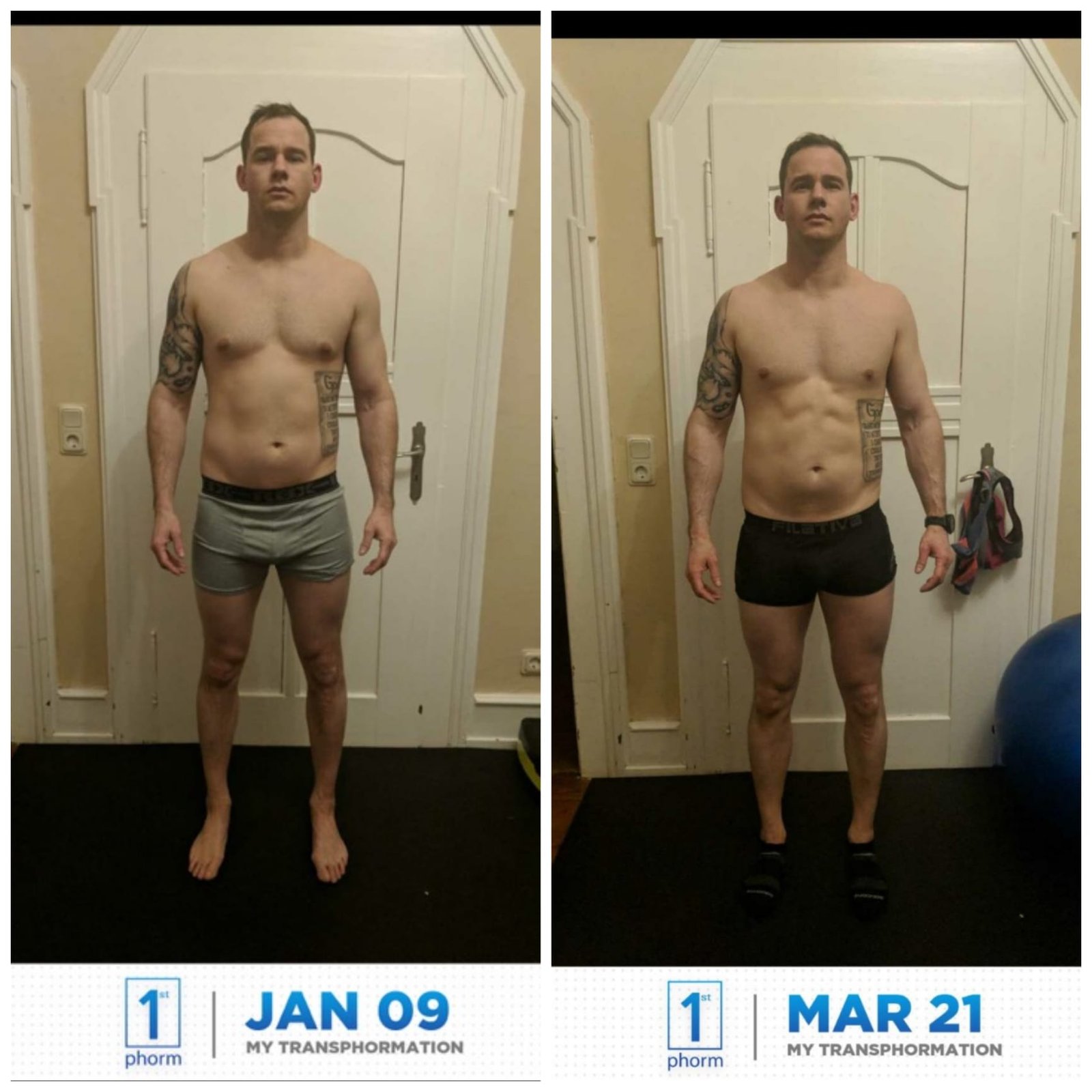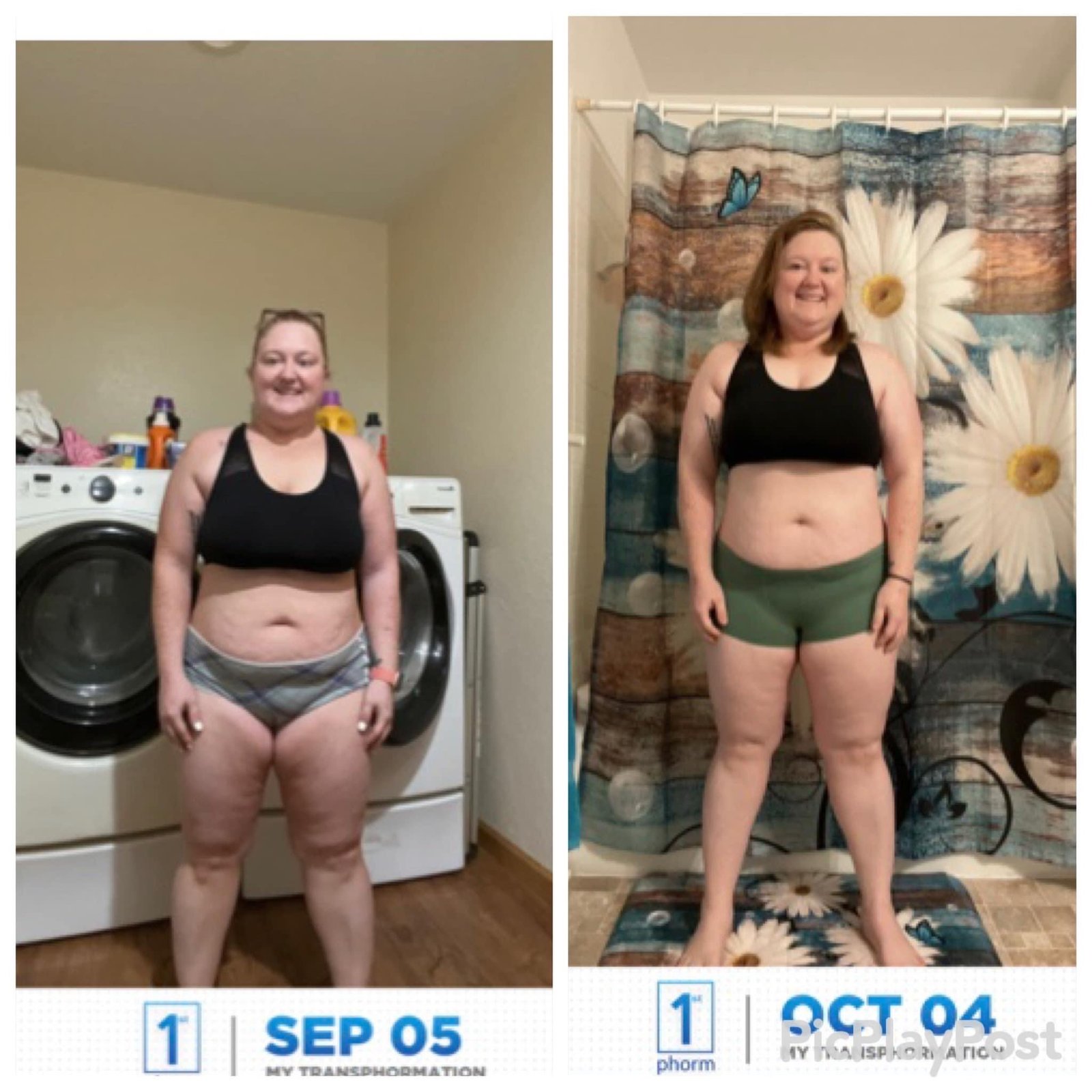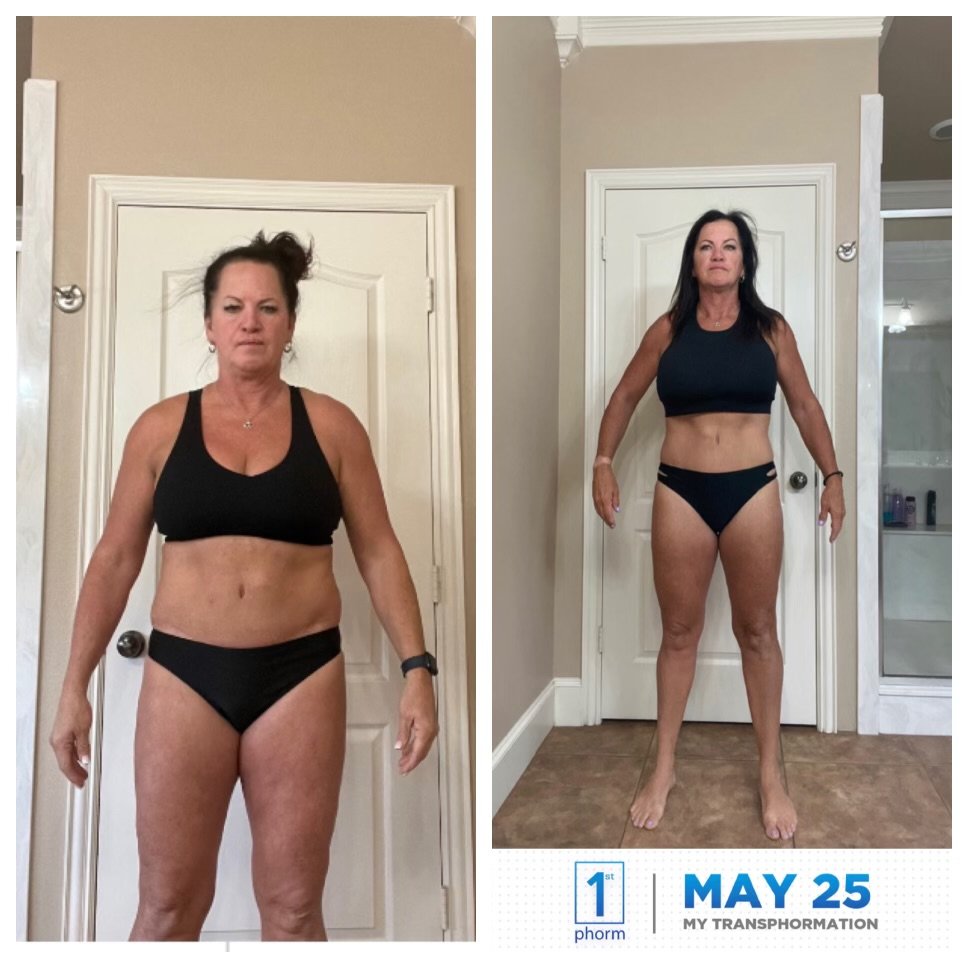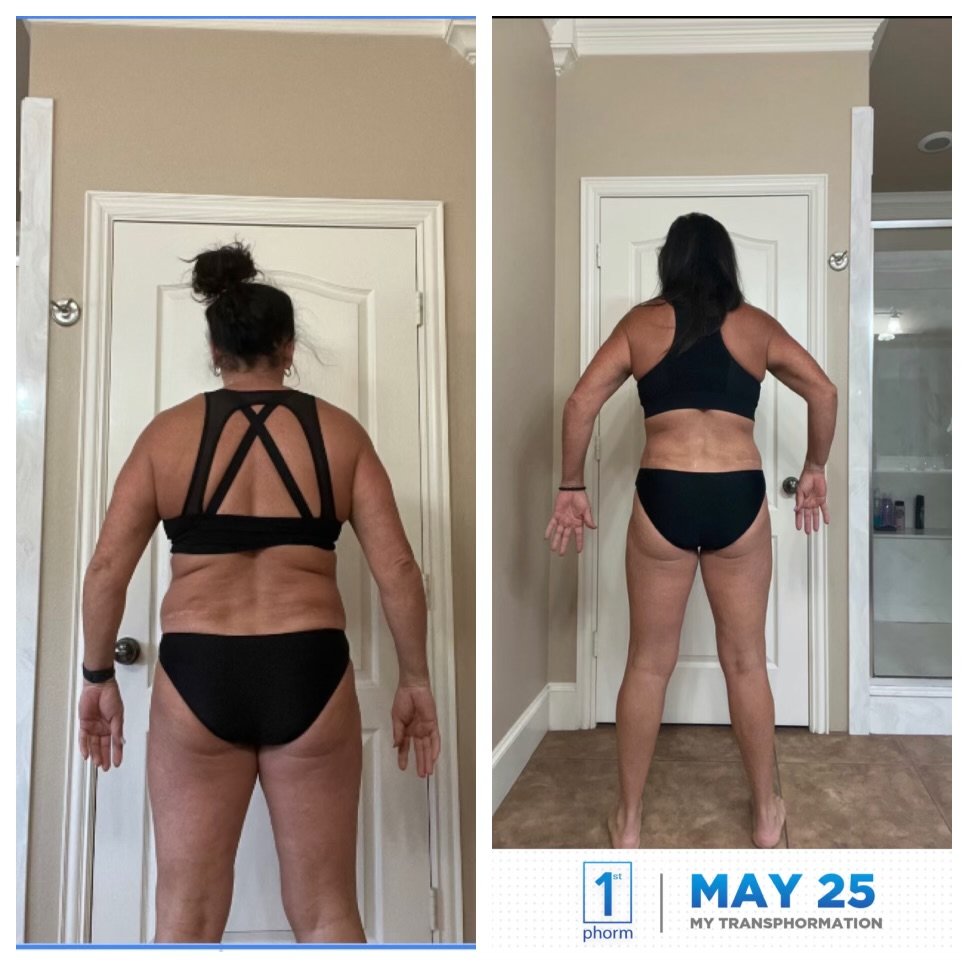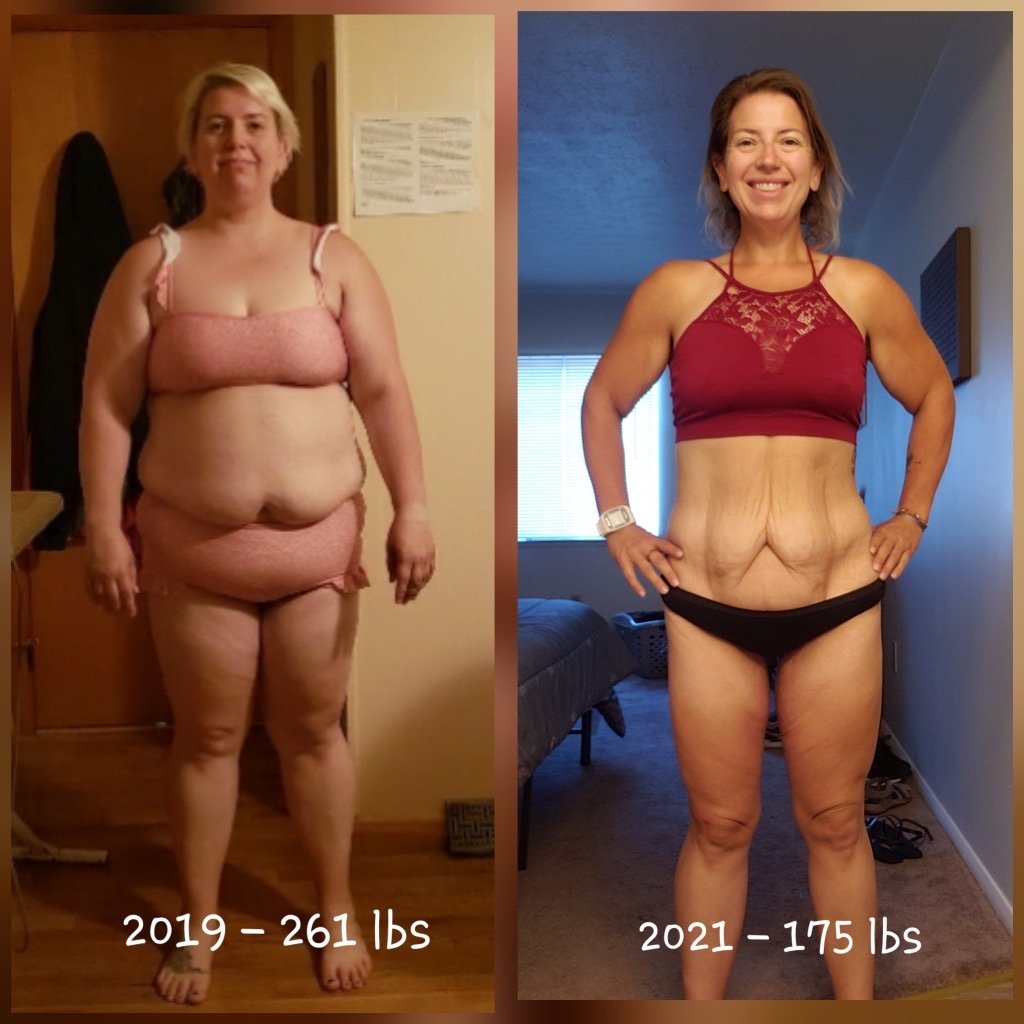In the world of CrossFit, achieving peak performance is the ultimate goal. From pushing harder and lifting heavier to achieving faster times, the drive to improve is constant. However, without proper nutrition, all the effort put into training can go to waste. Fueling your body with the right nutrients is crucial to optimize your CrossFit performance and take your workouts to the next level.
In this section, we will discuss the importance of proper nutrition in optimizing CrossFit performance and how it can impact your athletic output.
Key Takeaways:
- Proper nutrition is vital to optimize CrossFit performance.
- Fueling the body with the right nutrients can improve endurance, strength, and energy levels.
- Without proper nutrition, all the effort put into training can go to waste.
- In this section, we will discuss the importance of nutrition for CrossFit athletes.
- Stay tuned for tips and strategies for fueling your body to maximize your CrossFit performance.
Understanding CrossFit Performance
CrossFit is a high-intensity fitness program that combines aspects of weightlifting, gymnastics, and cardiovascular training. It is designed to improve overall physical fitness and performance in areas such as strength, endurance, and speed.
CrossFit workouts involve constantly varied movements executed at high intensity. This intensity is what makes CrossFit different from other traditional forms of exercise. CrossFit has a unique way of pushing the body to its limits, constantly challenging one’s fitness and physical capabilities.
CrossFit workouts can be broken down into different categories, such as metabolic conditioning (MetCons), strength training, and gymnastics. Each category focuses on developing a specific aspect of fitness, and a well-rounded CrossFit athlete should have proficiency in each of these areas.
The ultimate goal of CrossFit is to increase overall fitness and improve performance across a wide range of functional movements and activities. By training in this way, CrossFit athletes can experience benefits in all areas of physical fitness, from endurance to strength to mobility.
Next, we’ll dive into the role of proper nutrition in optimizing CrossFit performance.
The Power of Fueling Your Body
Proper nutrition plays a critical role in fueling your body for CrossFit workouts. The right nutrients can enhance energy levels, strength, and endurance, enabling you to maximize your athletic output. However, with so many trendy diets and conflicting nutritional advice, it can be challenging to determine the optimal fuel for your body.
One of the most effective ways to fuel your body is by following a balanced diet that includes a mixture of macronutrients and micronutrients.
Macronutrients for CrossFit Athletes
CrossFit athletes require a balanced intake of carbohydrates, proteins, and fats to support their demanding training routines. Carbohydrates are a vital energy source that can help to provide fuel for high-intensity workouts, while proteins are crucial for repairing and building muscles. Fats, on the other hand, can help to improve overall health and provide sustained energy throughout the day. The optimal ratios and sources for each nutrient will depend on individual factors such as body composition, training goals, and lifestyle.
The following table provides a general guideline for macronutrient intake for CrossFit athletes:
| Macronutrient | Recommended Intake |
|---|---|
| Carbohydrates | 45-65% of total daily calories |
| Proteins | 10-35% of total daily calories |
| Fats | 20-35% of total daily calories |
It’s essential to choose high-quality sources of macronutrients, such as complex carbohydrates, lean proteins, and healthy fats. Incorporating whole foods, such as fruits, vegetables, whole-grains, nuts, and seeds, can provide a range of essential micronutrients that support overall health and athletic performance.
Micronutrients for Improved Performance
Micronutrients, such as vitamins and minerals, are critical for overall health and play a crucial role in maximizing CrossFit performance. For example, some of the key micronutrients that support muscular function, energy metabolism, and endurance include:
- Iron
- Magnesium
- Vitamin B12
- Vitamin D
Choosing nutrient-dense foods such as leafy greens, nuts, seeds, and fruits, can help to ensure that you get the optimal intake of micronutrients.
Intra-Workout Fueling Tips
In addition to following a balanced diet, fueling your body during CrossFit workouts is also crucial for optimal athletic output. Consuming a mix of carbohydrates and electrolytes during workouts can help to maintain energy levels, improve performance, and prevent muscle breakdown.
Consider incorporating the following intra-workout fueling tips to improve your CrossFit performance:
- Drink water regularly to stay hydrated
- Consume carbohydrates and electrolytes during workouts, either through whole-food sources or sports drinks/gels
- Monitor your body’s response to fueling during workouts and adjust accordingly
Optimizing CrossFit performance through proper nutrition is vital for athletes looking to take their workouts to the next level. By incorporating a balanced mix of macronutrients and micronutrients and fueling strategically during workouts, you can enhance your energy, strength, and endurance.
Macronutrients for CrossFit Athletes
CrossFit athletes require a balance of all three macronutrients: carbohydrates, proteins, and fats. Each nutrient plays a critical role in optimizing performance, and understanding the ideal ratios and sources is essential.
Carbohydrates
Carbohydrates are the primary source of energy for CrossFit athletes. They provide glucose, which fuels the muscles during intense workouts. For CrossFit athletes, it is recommended to consume 3-5g of carbohydrates per pound of body weight daily.
The main sources of carbohydrates include:
| Source | Carbohydrates / serving |
|---|---|
| Brown Rice | 45g |
| Sweet Potato | 27g |
| Quinoa | 39g |
| Oatmeal | 27g |
Proteins
Proteins are essential for muscle repair and growth. For CrossFit athletes, it is recommended to consume 1.5-2g of protein per pound of body weight daily.
The main sources of protein include:
- Chicken Breast
- Turkey Breast
- Salmon
- Eggs
Fats
Fats provide long-lasting energy and aid in hormone production. For CrossFit athletes, it is recommended to consume 0.5-1g of fat per pound of body weight daily.
The main sources of healthy fats include:
- Avocado
- Almonds
- Salmon
- Olive Oil
It’s important to note that the ideal ratio of each macronutrient varies depending on the athlete’s goals, weight, and activity level. Consult with a nutritionist to determine the right balance for your individual needs.

Micronutrients for Improved Performance
While macronutrients play a crucial role in fueling your body during CrossFit workouts, it’s essential not to overlook the importance of micronutrients in supporting improved performance. These are the vitamins and minerals that your body needs in smaller quantities but are no less critical in keeping you healthy and strong.
Some of the key micronutrients that CrossFit athletes should focus on include:
| Micronutrient | Role in Performance | Food Sources |
|---|---|---|
| Iron | Aids in oxygen transportation, prevents fatigue | Red meat, spinach, beans, fortified cereals |
| Vitamin D | Supports bone health, boosts immune system | Salmon, egg yolks, fortified dairy products |
| Magnesium | Regulates muscle and nerve function, supports bone health | Almonds, spinach, avocado, black beans |
| Zinc | Supports immune function, aids in protein synthesis, and wound healing | Red meat, oysters, pumpkin seeds, lentils |
These micronutrients are just a few examples of the essential vitamins and minerals that can help improve CrossFit performance. While it’s possible to obtain most micronutrients through a well-rounded diet, some athletes may benefit from additional supplementation.
Remember, adequate nutrition is key to maintaining optimal health and improving athletic performance. By ensuring you’re consuming the right balance of macronutrients and micronutrients, you can maximize your results in the box.
Pre-Workout Nutrition Strategies
Your body needs the right fuel to power through intense CrossFit workouts. Pre-workout nutrition is crucial to prepare your body for the physical demands of your training session. Here are some effective strategies to consider:
Timing
The timing of your pre-workout meal is crucial. Eating too close to your workout can result in stomach discomfort, while eating too early can leave you feeling hungry and low on energy. As a general rule of thumb, aim to eat a meal 2-3 hours before your training session.
Meal Composition
When it comes to pre-workout meal composition, it’s essential to focus on carbohydrates for energy and protein for muscle repair and growth. Opt for complex carbohydrates like brown rice, quinoa, or sweet potato, combined with a lean source of protein like chicken, fish, or tofu.
Key Nutrients
Certain nutrients can provide an extra boost to your pre-workout meal. Consider adding these to your plate:
- Caffeine: This stimulant can help improve focus, energy, and endurance. A cup of coffee or green tea before your workout can do the trick.
- Beta-Alanine: This amino acid can help improve muscular endurance, delay fatigue, and enhance performance. You can find it in supplement form or in foods like chicken, beef, and fish.
- Creatine: This compound can help increase strength, power, and muscle mass. It’s commonly found in red meat, fish, and supplements.
“Fueling your body with the right nutrients before your CrossFit workout can make all the difference in your performance and endurance.”
Experiment with different pre-workout nutrition strategies to see what works best for you. Remember to listen to your body and adjust your meal timing and composition accordingly. By optimizing your pre-workout nutrition, you can take your CrossFit game to the next level.
Intra-Workout Fueling Tips
Intra-workout nutrition is critical in maximizing CrossFit performance and preventing muscle breakdown during training. When the body runs out of glycogen, which is stored in the muscles and liver, it turns to protein for energy. This can lead to muscle breakdown, which hinders performance and recovery.
Consuming carbohydrates during training can help replenish glycogen stores and prevent muscle breakdown. Aim to consume 30-60g of carbohydrates per hour of training. Good sources of carbohydrates include bananas, sports drinks, energy gels, or bars.
Protein is also crucial for intra-workout fueling, as it can help limit muscle breakdown and stimulate muscle protein synthesis. Aiming for 10-20g of protein per hour of training can support optimal performance. Good sources of protein include whey protein powder, BCAA supplements, or lean protein sources such as chicken or fish.
| Carbohydrate source | Protein source | |
|---|---|---|
| Option 1 | 1 banana | 1 scoop of whey protein powder |
| Option 2 | 1 energy gel packet | 1 scoop of BCAA supplement |
| Option 3 | 16 oz. sports drink | 3 oz. grilled chicken breast |
It’s also essential to stay hydrated during training. Drinking at least 16-20 oz. of water or sports drink per hour of training can help maintain optimal hydration levels. Adding electrolytes to your drink can also help replenish minerals lost through sweat.
Timing is critical when it comes to intra-workout fueling. Aim to consume carbohydrates and protein 30 minutes to an hour before training and every 30-60 minutes during training. Consuming too much food or drink at once can lead to digestive discomfort, so be mindful of portion sizes.
Overall, proper intra-workout fueling can help you sustain energy levels, improve performance, and prevent muscle breakdown during CrossFit workouts. Experiment with different carbohydrate and protein sources and timing strategies to find what works best for your body.
Post-Workout Recovery and Nutrition
Post-workout nutrition is a critical component of maximizing performance and promoting muscle recovery in CrossFit athletes. Consuming the right nutrients after a workout can help replenish glycogen stores, decrease muscle protein breakdown, and enhance muscle protein synthesis.
The optimal timing for post-workout nutrition is within 30 minutes of completing your workout, although consuming nutrients up to two hours post-workout can still be beneficial. The post-workout meal should contain a balance of carbohydrates and protein, with an emphasis on quickly digestible sources to promote efficient nutrient uptake.
| Nutrient | Recommended Amount | Food Sources |
|---|---|---|
| Carbohydrates | 0.5-0.7 grams per pound of body weight | Bananas, white rice, potatoes, fruit juice, bagels |
| Protein | 0.14-0.23 grams per pound of body weight | Whey protein powder, chicken, fish, eggs, Greek yogurt |
It’s also important to hydrate after a workout, as dehydration can hamper recovery and lead to decreased athletic performance. Aim to drink at least 16-20 ounces of water or an electrolyte-rich sports drink in the hour following your workout.
Overall, post-workout nutrition is an integral part of an athlete’s nutrition plan and should be given the same level of attention as pre-workout and intra-workout nutrition. By fueling your body with the right nutrients at the right time, you can optimize your recovery and performance, and reach your CrossFit goals.
Supplementation for CrossFit Athletes
Supplementation can be a useful tool for CrossFit athletes seeking optimal performance, recovery, and overall health. However, it’s essential to remember that supplements should not replace a balanced and nutrient-dense diet but rather complement it.
One of the most popular supplements among CrossFit athletes is protein powder. Protein is crucial for muscle repair and growth, making it a staple for athletes looking to enhance their recovery process. Whey protein is one of the most common types of protein powder, as it is easily digestible and readily available.
Branched-chain amino acids (BCAAs) are another popular supplement. BCAAs are essential amino acids that can promote muscle protein synthesis and reduce muscle breakdown. They are especially useful during prolonged and intense workouts, as they can help delay fatigue and enhance endurance.
Additionally, creatine is a supplement that can improve strength and power output during high-intensity exercise. It works by increasing the body’s production of ATP, the primary energy source for muscle contractions.
Other supplements that may benefit CrossFit athletes include beta-alanine, which can improve endurance and buffer muscle acidity, and caffeine, which can increase energy levels and reduce perceived exertion during workouts.
Table: Most Common Supplements for CrossFit Athletes
| Supplement | Function | Recommended Dosage |
|---|---|---|
| Protein Powder | Aids in muscle repair and growth | 20-30 grams per serving |
| BCAAs | Promotes muscle protein synthesis and reduces muscle breakdown | 5-10 grams pre-, intra-, or post-workout |
| Creatine | Improves strength and power output during high-intensity exercise | 5 grams per day |
| Beta-Alanine | Improves endurance and buffers muscle acidity | 2-5 grams per day |
| Caffeine | Increases energy levels and reduces perceived exertion during workouts | 3-6 mg per kilogram of body weight 1 hour before exercise |
It’s essential to note that supplements can have side effects and may interact with medications, so it’s crucial to consult a healthcare professional before starting any supplementation regimen. Additionally, not all supplements are created equal, so it’s essential to choose high-quality brands that undergo third-party testing to ensure purity and potency.
Overall, supplementation can be a useful tool for CrossFit athletes, but it should always be approached with caution and used in conjunction with a well-rounded nutrition and fitness plan.
Hydration: A Cornerstone of Performance
Hydration is a critical factor in optimizing CrossFit performance. Dehydration can lead to decreased energy levels, impaired cognitive function, and decreased athletic output. In addition, the intensity and duration of CrossFit workouts can cause significant fluid loss through sweating, further emphasizing the importance of hydration.
The amount of water needed for optimal hydration varies depending on several factors, including body weight, activity level, and environmental conditions. As a general guideline, aim to consume at least half of your body weight in ounces of water per day. For example, a 150-pound athlete should aim for a minimum of 75 ounces of water daily.
Electrolytes
Electrolytes are minerals that are essential for proper hydration and athletic performance. They are lost through sweat during exercise and must be replenished to maintain optimal fluid balance in the body. The most important electrolytes for CrossFit athletes are sodium, potassium, and magnesium.
Sodium is the primary electrolyte lost through sweat and is critical for maintaining fluid balance in the body. It is important to replenish sodium during and after exercise, especially for high-intensity workouts lasting longer than 60 minutes. Good sources of sodium include sports drinks, salted nuts, and electrolyte tablets.
Potassium is another essential electrolyte that supports proper muscle function and cardiovascular health. It is also lost through sweat during exercise, and replenishing potassium helps to prevent cramping and muscle fatigue. Good sources of potassium include bananas, potatoes, and leafy greens.
Magnesium is a mineral that is involved in over 300 biochemical reactions in the body, including energy production and muscle function. It is commonly lost through sweat during exercise and must be replenished to support optimal athletic performance. Good sources of magnesium include nuts, seeds, and leafy greens.
Hydration Strategies
In addition to consuming adequate water and electrolytes, there are several strategies that can boost hydration and fueling during CrossFit workouts:
- Drink water regularly throughout the day to maintain optimal hydration levels.
- Sip on water during workouts to prevent dehydration and maintain energy levels.
- Consume sports drinks or electrolyte tablets during prolonged, high-intensity workouts to replenish lost electrolytes.
- Include hydrating foods in your diet, such as watermelon, cucumber, and citrus fruits.
By prioritizing proper hydration and electrolyte replenishment, CrossFit athletes can optimize their performance and achieve new levels of strength and endurance.

Conclusion
Optimizing CrossFit performance through proper nutrition is a game-changer. The right fuel can enhance energy levels, strength, and endurance, providing the resources necessary to push through challenging workouts. By understanding the role of macronutrients and micronutrients, you can maximize your body’s performance potential and support overall health and wellbeing.
Start your journey towards improved CrossFit performance today by implementing effective pre-workout and intra-workout nutrition strategies. Focus on consuming macronutrients in the ideal ratios and sources and incorporating essential micronutrients into your diet for better recovery and injury prevention.
Remember to prioritize post-workout recovery nutrition, facilitating muscle growth and supporting overall health. And last but not least, ensure proper hydration, a cornerstone of performance, by consuming adequate water and electrolytes and following effective hydration strategies.
Unlock New Levels of CrossFit Performance
Whether you are a seasoned athlete or just starting with CrossFit, proper nutrition can take your game to the next level. Understand the impact of nutrition on your body, follow effective fueling strategies and focus on optimizing recovery and overall health. By doing this, you can unlock new levels of strength, endurance, and overall performance in the box. So, go ahead and fuel your body with the right nutrients and start setting new PRs!
FAQ
What is CrossFit performance?
CrossFit performance refers to the athlete’s ability to excel in various physical tasks and workouts encompassed by the CrossFit training methodology. It involves combining elements of weightlifting, cardio, and gymnastics to achieve optimal fitness levels.
Why is proper nutrition important for optimizing CrossFit performance?
Proper nutrition plays a crucial role in maximizing CrossFit performance by providing the necessary fuel, energy, and nutrients for optimal muscle function, endurance, and recovery. It helps athletes achieve better results, prevent fatigue, and support overall health.
What are macronutrients?
Macronutrients are nutrients that are required in large quantities by the body for energy production and growth. They include carbohydrates, proteins, and fats, and are essential for fueling CrossFit athletes and supporting their training needs.
What are micronutrients and why are they important for CrossFit performance?
Micronutrients are essential vitamins and minerals that the body needs in smaller quantities for various functions, including supporting overall health and optimizing athletic performance. In the context of CrossFit, micronutrients aid in recovery, promote injury prevention, and enhance overall well-being.
What should I eat before a CrossFit workout?
Pre-workout nutrition is crucial for fueling your body and preparing it for intense CrossFit sessions. Aim for a meal or snack that includes a balance of carbohydrates and protein, along with some healthy fats. Timing is also important, so try to consume your pre-workout meal or snack around 1-2 hours before training.
How can I maintain my energy levels during a CrossFit workout?
During a CrossFit workout, it’s important to fuel your body to maintain energy levels and enhance performance. Consider consuming easily digestible carbohydrates, such as sports drinks, energy gels, or fruit, to provide a quick source of energy. Hydration and electrolyte balance are also key factors for sustaining energy during workouts.
What should I eat after a CrossFit workout?
Post-workout nutrition is crucial for promoting recovery and muscle growth after a CrossFit workout. Aim to consume a combination of carbohydrates and protein within 30-60 minutes after training. This can be in the form of a protein shake, a balanced meal, or a protein-rich snack to replenish glycogen stores and support muscle repair.
Are supplements beneficial for CrossFit athletes?
Supplements can be beneficial for CrossFit athletes as they can help fill in nutrient gaps and support specific training goals. However, it’s important to remember that supplements should not replace a well-balanced diet. Consult with a healthcare professional or nutritionist to determine which supplements may be appropriate for your individual needs.
How important is hydration for CrossFit performance?
Hydration is crucial for optimal CrossFit performance. It affects energy levels, muscle function, and overall well-being. Adequate water intake and electrolyte balance are essential to prevent dehydration, maintain performance, and support recovery during and after workouts.

